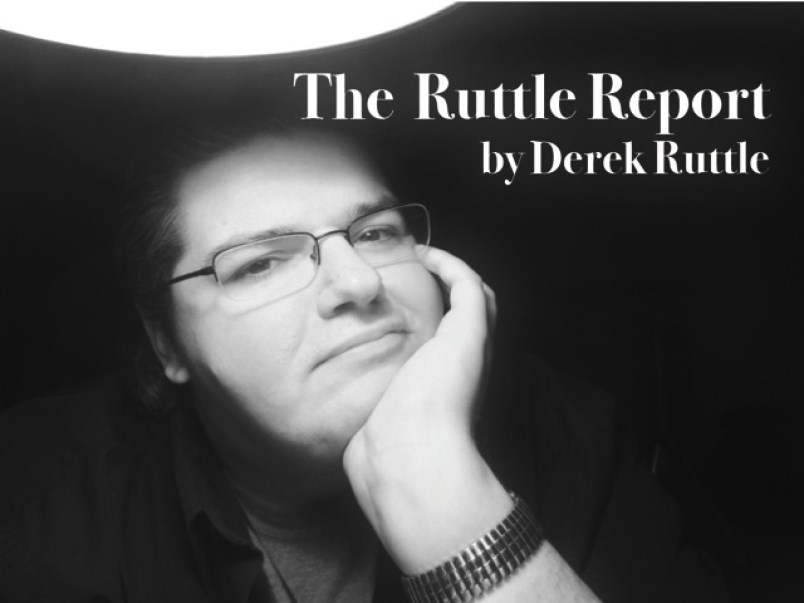Can I ask you a question, dear reader?
What do you think of when you hear the term 'free speech'?
I ask this because in 2022-about-to-be-2023, the concept of free speech can seem very different than how it was perceived a generation or two ago.
Take social media, for instance. The hot button topic lately has been the takeover of Twitter by tech billionaire Elon Musk. I should preface this by adding that Musk originally had second thoughts about buying Twitter, maybe even a touch of buyer's remorse, but he was pushed into completing the $44 billion purchase by lawyers, legal teams, Twitter itself, and you can probably insert a dozen more people into this equation by this point.
So, upon taking it over, Musk proceeded to lay out his vision for the globally-popular social media website, and that's pretty much when the poo-poo hit the fan.
Announcing that he was going to reevaluate the site's free speech parameters, which may or may not allow once-banned accounts to post again on Twitter, this set off a chain reaction of, well, reactions across the app, with some celebrities announcing that they were going to leave Twitter and others saying they were going to check out another social media application.
From my point of view atop the non-political fence, I found the whole situation to be both hilarious and sad.
I find it hilarious that in 2022, at a time in our world where we've never been more accepting of other cultures, other sexual orientations, and other walks of life that we're the same human beings who will cry foul because "my social media app is now allowing that one guy back!"
And I find it sad for that exact same reason.
We're breaking down barriers and reaching heights that humanity could only dream of a few decades ago, but we're getting pissy and moody because that one guy on Twitter who said something you didn't like is suddenly back again?
Are there cameras installed somewhere? Is this a setup? This is all for a wacky Japanese reality show, no? This bizarre behavior's being tracked in some form, right?
I truly don't understand the elitist and sometimes the downright arrogant attitude that people have on social media. If you say something that I don't agree with, that's fine. Maybe we banter back and forth on the subject, maybe you see my side, and maybe I see your side. If you're stepping even further over the line with your takes, I might offer a reply. But, if you're stepping even further over the line to the point where you look back and the line's no longer there anymore, then yes, that's when the Social Media Squad (the corporate guys) can come into play. As for me, that's what those handy little 'Block' or 'Ignore' buttons are for.
That's something that a lot of people need to understand. Is there a specific person on social media that you'd rather not see or read? Block and ignore them! I swear, it's just that easy! But this idea that X person needs to be banned from Twitter and basically shunned from the internet in general simply because he or she said something you didn't like is downright childish. It's the equivalent of screaming bloody murder just because some other kid in the sandbox took your favorite toy.
Of course, at the meat of the whole thing, to absolutely no one's surprise, is politics. That age-old battle between the left and the right. Earlier this year, a survey suggested that there's a strong relationship between a person's political perspective and their views on free speech in Canada.
The 1000 respondents were asked about the topic as well as their political leanings through the University of Saskatchewan's Canadian Hub for Applied and Social Research. The phone survey, conducted between June 1-27, saw those who lean right as being more likely to believe that there should be no limits on free speech, while those who lean left in their politics believed that there should be a limit on free speech.
This is about what you'd expect to read, as far as the data being reported here. But is having no limits on free speech a good thing? And where exactly is the line being drawn if you lean to the left?
In my book, I don't know why politics has to be so deeply entrenched in this matter all of the time. I don't care who you voted for in the last election, just tell me if you believe that you should be allowed to say whatever you choose, so long as no one gets physically hurt.
There's a line that I heard a few years ago. "Everybody loves free speech until you use free speech", and I'd say that describes our world right now. Well, folks, you can't have it both ways. You can't call yourself a proponent of free speech and then be okay with the 47 asterisks that seem to be applied to it.
My belief is that free speech has to be just that - free. No asterisks, no parenthesis, and no liner notes attached. I believe that people should be allowed to say whatever they want, as long as no one is getting physically hurt and people simply back up what they say with undisputed facts. That's not too much to ask, is it? Simple formula, in my book. Say whatever you want, but be prepared to answer a question or two that may be posed, and back up what you say with facts. And sorry, folks, things like Wikipedia and "that Facebook post your uncle tagged you in" aren't exactly facts.
I believe that every person from every side should have an equal say. I don't believe that anyone should suffer any physical harm as a result of what someone says.
Get it? Got it?
Great!
For this week, that's been the Ruttle Report.




